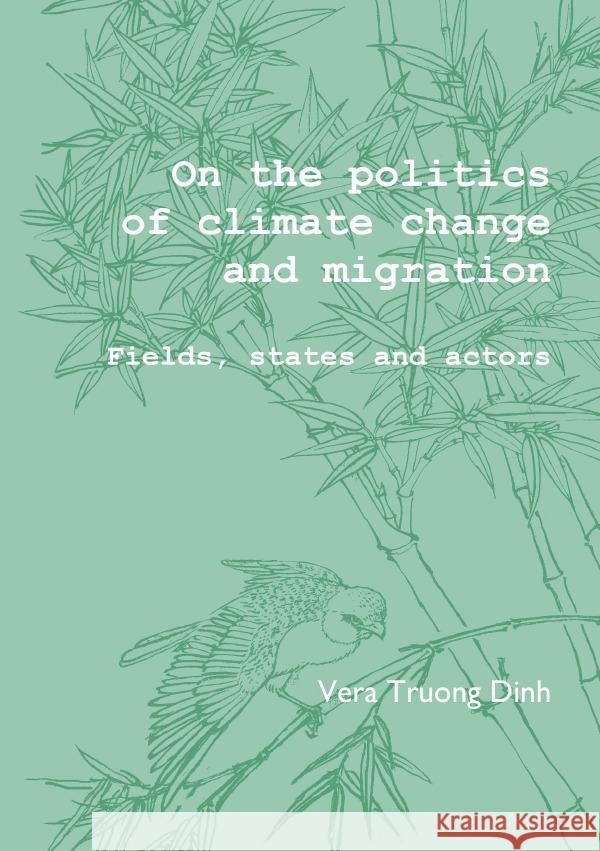On the Politics of Climate Change and Migration: Fields, States and Actors » książka
On the Politics of Climate Change and Migration: Fields, States and Actors
ISBN-13: 9783750285880 / Angielski
This book examines the emergent international policy field of climate change and migration.
In recent years, states and the international community have increasingly been confronted with people moving because of natural disasters and the effects of climate change (colloquially, 'climate refugees'). This book examines the emergent international policy field of climate change and migration and focuses on why the topic has entered international politics, and what the main actors, interests and politics involved were. To this end, it reviews the current literature on climate change and migration and undertakes an in-depth study of the leading intergovernmental policy process in the field: the Nansen Initiative (2012-2015), founded by the governments of Norway and Switzerland. Academic researchers, policy experts and the media agree on the pivotal role of the Nansen Initiative in addressing climate change and migration in the international policy scene. However, we know little about the reasons of its founding, internal decision-making and the main actors lobbying and mobilising for it. This book addresses this gap by means of the qualitative content analysis of expert interviews with actors involved, archival documents, and secondary information. In terms of theory, it works with propositions from sociological field theory (particularly by Bourdieu, and Fligstein and McAdam), arguing that the concept of the field is useful to capture why and how different actors pursue strategic action in order to formulate policies. By doing so, it hopes to add to an interdisciplinary dialogue within the literature on policy-making (e.g. sociology and the political sciences), and to offer a theoretically fresh angle on studying 'the policy process'. The book should be of interest to scholars who examine the link between climate change and migration, on the one hand, and, more theoretically, to those who seek to apply field theory to the analysis of the policy process and 'the state'.











